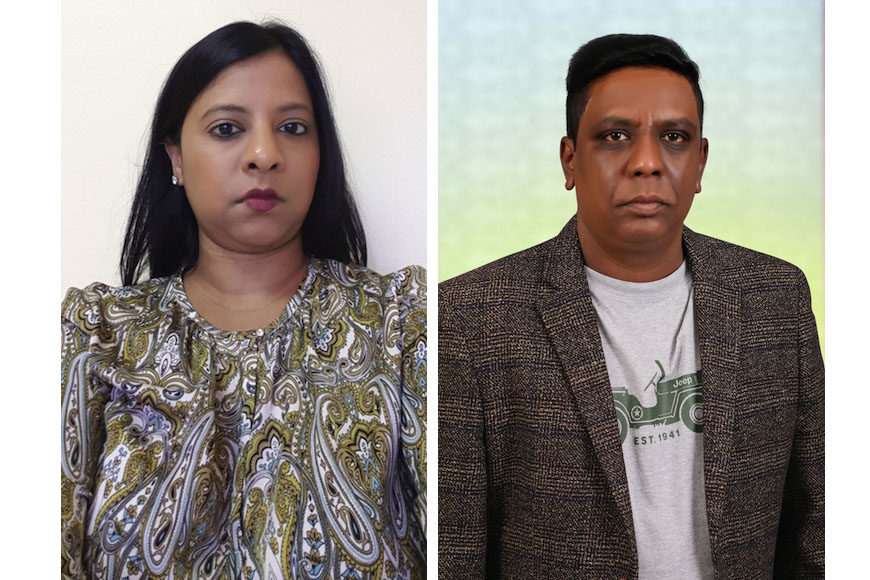The Office of Research and Postgraduate Support recently hosted a webinar on NRF Funding Opportunities for Next Generation and Emerging Scholars via MS Teams.
The webinar guest speaker was Mrs Thashni Pillay, the Director in Grants Management and Systems Administration at the NRF. She has worked at the National Research Foundation (NRF) for the last 12 years, prior to which she worked at the CSIR. She has worked with next generation and emerging researchers for over 10 years and has extensive experience in research management.
Her presentation delved into the “NRF Next Generation and Emerging Researchers Funding Opportunities for 2023.”
It provided an overview of the funding opportunities for next-generation and emerging programmes supported through the NRF, information on the policy, eligibility criteria’s and application requirements under the programmes.
The presentation highlighted important stages of the application process and details that applicants should consider when completing their application process.
Mrs Pillay spoke on the NRF’s mandate which is to contribute to national development by supporting, promoting and advancing research and human capacity development, through funding and the provision of the necessary research infrastructure, in order to facilitate the creation of knowledge, innovation and development in all fields of science and technology.
“Developing, supporting and maintaining national research facilities; supporting and promoting public awareness of, and engagement with, science; and promoting the development and maintenance of the national science system and support of Government priorities,” she said.
She further spoke on the NRF Transformation Framework, postgraduate scholarships, the eligibility criteria for honours and master’s levels as well as the Doctoral level.
Pillay conveyed on the Masters and Doctoral Extension period saying that applicants must be NRF scholarship-holders in 2022.
“Extensions will only be granted under exceptional circumstances and will be for either six (6) or twelve (12) months. Applicants applying for extension support at the master’s level must have registered for their master’s degree in 2021 or July 2020. Applicants applying for extension support at the doctoral level must have registered for their doctoral degree in 2020 or July 2019. Applicants must have the support from their supervisor in order for the extension application to be considered,” she added.
Other issues discussed were the age limitation, citizenship eligibility, financial means test, scholarship values, periods of support which is based on date of initial registration for the degree and postgraduate review scorecards.
Pillay went into more detail about the Black Academics Advancement Programme (BAAP).
“The objectives of BAAP is supporting academics, particularly black African females and persons with disabilities, employed at public universities to attain Doctoral level qualifications. Supporting academics, particularly black African females and persons with disabilities, employed at public universities to attain postdoctoral level training; and promoting the attainment of an NRF-rating by black African early-career academics, especially black and female researchers and persons with disabilities (3-5 years post the programme),” she said.
Another aspect of discussion was on nGAP funding opportunities which is a six-year programme split into a three-year development phase followed by a second three-year induction or early career phase.
“In the initial three years, the scholar is expected to benefit from research and teaching development opportunities, to complete or make good progress towards a master’s or doctoral degree, or undertake postdoctoral training. DHET provides holistic and complementary support for the career development of next-generation scholars focusing on teaching, learning, research, and postgraduate supervision. The DSI-NRF provides a research development grant for newly appointed nGAP scholars with the understanding that this will facilitate their application for competitive research grants to the NRF and other funders and donors,” she said.
Pillay then explained the process of how to apply, how to prepare a grant application.
The presentation concluded with a question and answers session talk on concerns and unanswered questions from the presentation.
Giving the vote of thanks was Research fellow from the Directorate for Research and Postgraduate Support, Dr Suresh Babu Naidu Krishna.
“Dear colleagues, friends and student friends, I would like to thank Ms Thashni Pillay for accommodating us in her busy schedule and having an open discussion for the benefit of all research scholars who are pursuing higher studies at DUT. In a nutshell we have been taken through a thorough discussion of the application process from the NRF and in which she has extensively discussed postgraduate programmes available and their criteria’s, postdoctoral fellowships and Thutuke funding opportunities for emerging scholars and for the rating applications also,” he said.
He once again thanked her for the presentation and would like for her to consider coming back again and also thanked all attendees for being part of the webinar.
Pictured: Guest speaker, Mrs Thashni Pillay, the Director in Grants Management and Systems Administration at the NRF and Dr Suresh Babu Naidu Krishna, Research fellow from the Directorate for Research and Postgraduate Support.
Waheeda Peters


